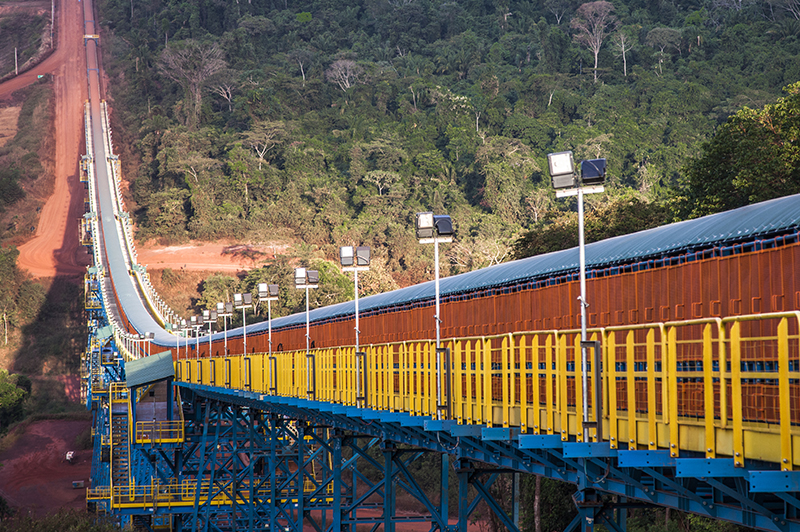
China’s iron ore imports have been on a tear in 2021 so far. March logged 102.1 million tonnes imported, and April dropped to 98.6 million tonnes. One of the most robust partnerships for this trade has been between China and Australia. Australia’s iron-rich reserves have been supplying China for years, and iron ore transactions account for a large part of the island’s GDP.
Most recently, though, iron ore prices are dropping, as China’s trade data for May showed shrinking profit margins for steelmakers, hitting enthusiasm with a wet blanket. China is responsible for more than half the world’s output, and any shift in their trade data always signals a shift in the market.
Steel Exports Hit Iron Ore Imports
May saw iron ore imports hit 89.8 million tonnes in May, significantly lower than March and April. Steel exports followed lower, down 34% from April to May to 5.3 million tonnes.
“The proportion of iron ore shipped to China from Australia fell a lot recently, and we can see the decline to continue in coming months,” said Wang Yingwu, an analyst with Huatai Futures in Beijing.
Iron ore and steel price dynamics are closely linked, with Chinese producers driving much of the demand. When exports slow or grow, overall demand can shrink by up to 15% from month to month. “The sharp drop in steel prices…has led to a sharp drop in the profits of steel mills,” according to a recent note from Sinosteel Future analysts.
That demand slowdown is also creating a lot of short-term volatility for iron ore as global supply remains tight, generally keeping prices high.
Global Iron Ore Production In a Delicate Balance
One producer feeling the squeeze is Vale (VALE). Last Friday, the company had to stop production at the Timbopeba mine in Brazil and a section of its Alegria mine. Prosecutors had ordered the evacuation of an area around the nearby Xingu dam in the state of Minas Gerais.
In an already tight market, these closures could account for up to 40,000 iron ore tonnes per day, according to Vale (VALE).
“It is unlikely the global balance will feel the full weight of this supply vacuum as Vale (VALE) fights to overturn this ruling as quickly as it was imposed,” managing director at Navigate Commodities in Singapore Atilla Widnell said.
Still, as iron ore prices continue to swing and ultimately climb, the squeeze is likely to continue for steel producers importing the valuable ore, even as steel exports continue to shrink in some parts of the world.
The most-traded September iron ore on China’s Dalian Commodity Exchange ended daytime trading 4.4% lower at 1,118 yuan ($174.70) a tonne.
Benchmark 62% Fe fines imported into Northern China (CFR Qingdao) were down 2.4%, changing hands for $202.42 a tonne, according to Fastmarkets MB, on Monday afternoon.



 Follow us on Twitter
Follow us on Twitter Become our facebook fan
Become our facebook fan










Comments are closed.